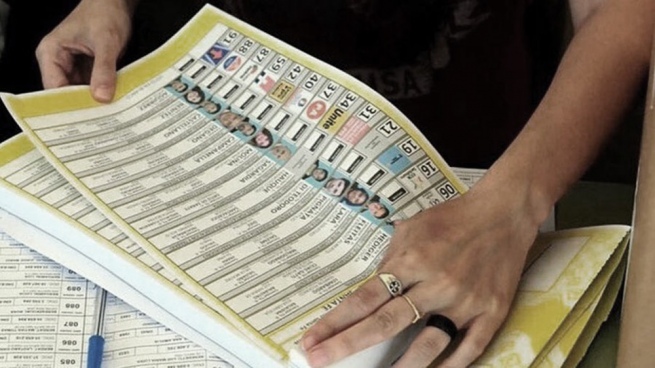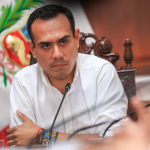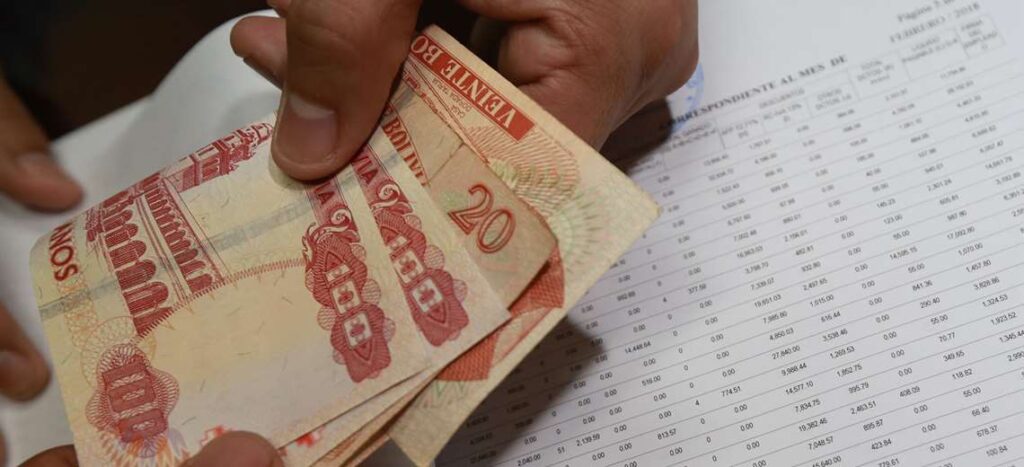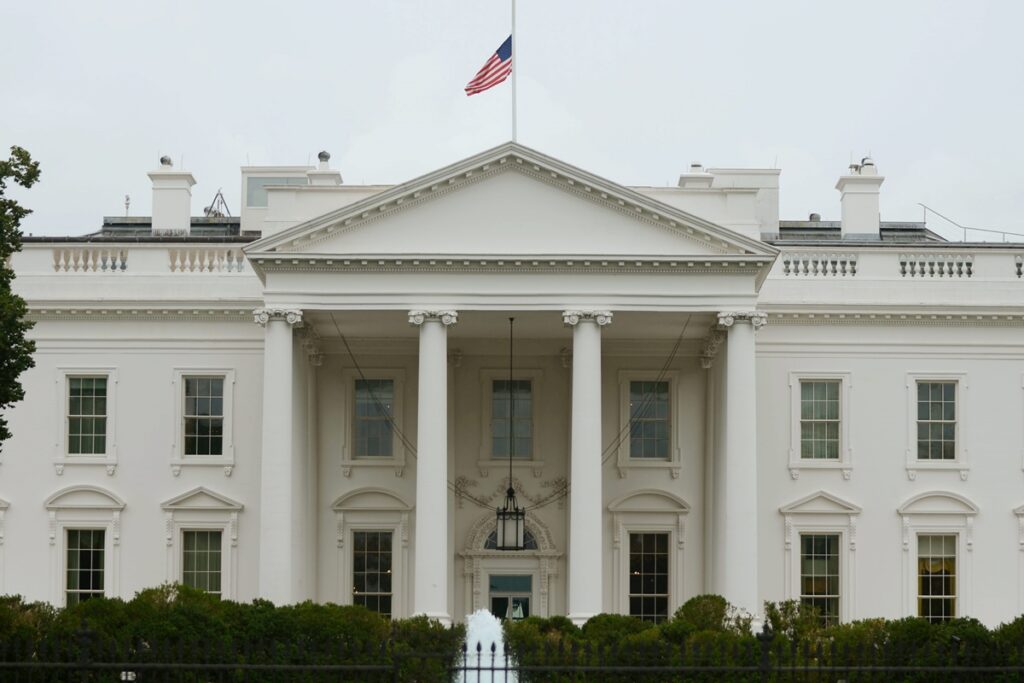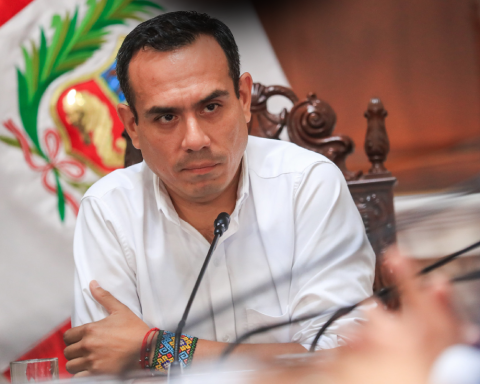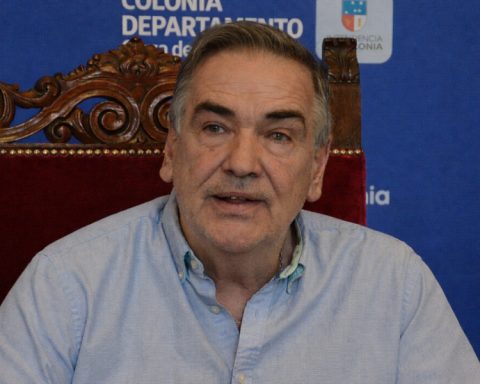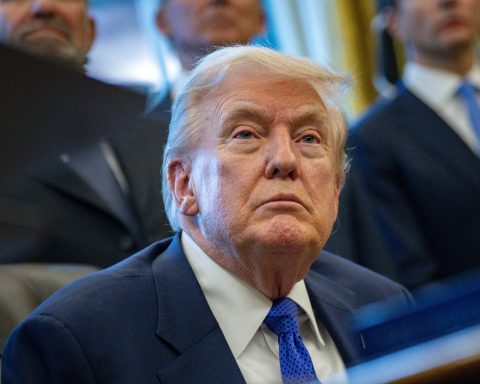Different speakers raised this Tuesday their criticism of the projects that seek to implement the single paper ballot, including the Director of the Electoral Observatory of the Permanent Conference of Latin America and the Caribbean (Coppal), Dolores Gandolfowho maintained that “the debate around the single ballot seems to emphasize a phenomenon that lacks evidence” and warned that this discussion seems to bring “more problems than solutions.”
“The project entitled single ballot ignores the parity law and takes us back to 30% representation for women, this is undoubtedly important to note because it highlights the express treatment of this type of regulation”Gandulfo asserted when presenting at a plenary session of the Chamber of Deputies commissions, which opened the debate on the implementation of a single ballot.
In this framework, Gandolfo maintained that “an electoral reform solely based on the voting instrument must undoubtedly entail an analysis of the context” and said that “thinking of implementing a reform for the first time in a presidential election in contexts as polarized as we live in the region and the world seems to bring more risks than solutions”.
“The debate around the single ballot seems to emphasize a phenomenon that lacks evidence”I consider.
In this sense, Gandolfo affirmed that “There have been no complaints of fraud since the return of democracy and the system has guaranteed party alternation” and said that “even in very polarized processes, we will remember in 2015, when Mauricio Macri won with only 2.6% in a runoff, no one questioned that result.”
“That shows the democratic quality and civic commitment of our people and, at the same time, the responsibility of the political actors,” he stressed, noting that “we must have data to talk about this issue” and added: “Let’s talk about the most important thing that I want to bring to the table, which has to do with the adverse effects of this modification of an electoral reform not having a problem”.
For his part, the political scientist Andy Tow, defended the current party ballot system and considered that “its persistence can be explained fundamentally by its versatility, within the framework of the federal regime” and “not only for the holding of simultaneous elections of different bodies and levels of government, but, above all, for the construction of multilevel coalitions.”
In this line, he considered that “The traps are more difficult when there are diverse and linked positions at stake in the elections, and when there is the presence of federal and local authorities, when the gazes are multiple, and when there are more interested parties that the verdict of the polls is not subject to of controversy”.
While, Thomas Aguerrefrom the Monteagudo Communications Agency, highlighted the importance of having “a documented, concrete and clear diagnosis of what problem we are seeking to attack and how we are going to attack it.”
“The sensation is not enough, what we think, what could potentially happen,” he warned.
In this context, Aguerre asserted that “There are 40 years of experience in elections, we should either have this information documented or use, for example, next year’s election to propose a serious, systematic study, carried out by the State, by some organization, that tells us where the problem is, in what districts, cities, provinces, and what is the actual problem”.
“It is very difficult to discuss projects that are very different,” he pointed out and stated that “each voting instrument proposal is not the same if we are talking about the Cordoba system, the Santa Fe system, or our own system, because each voting instrument Voting generates different effects on voters, it has different costs, it has different implementation times and, above all, it generates effects”.
According to Aguerre, “this is not a project that I think we can think of implementing next year, it has to take at least some time and pilot tests to start in 2027” and added that “we must incorporate the issue of accessibility that It is not a minor issue, especially if we go to a single ballot system like the Cordovan one, where the issue of accessibility is not easy”.
Plenary
The plenary of the Constitutional Affairs, Justice and Budget commissions of the Chamber of Deputies debated on Tuesday the scope of the projects for the implementation of the single paper ballot, with the presentation of specialists and former officials, who were in favor and against to promote this system in our country.
The plenary will continue next week with the second informative meeting on the modification of the current system.
During the meeting, which took place on the second floor of Annex C of the Lower House, 20 guests spoke, of which 12 were in favor, while 8 expressed their objections to the modification of the electoral system used in the country.
To the already expressed positions of Gandulfo, Tow and Aguerre, those of the rest of the exhibitors were added.
The first to expose was Julia Pomareschief advisor to the city government, who considered that the implementation of the Single Ballot “assures voters that they can have all the options available, the same right to vote in Balvanera, in Trelew or González Catán” and said that “it is more sustainable with the environment”.
Meanwhile, the former governor of Salta, Juan Manuel Urtubeyshared the experience of the province with the implementation of the single electronic ballot and considered that the modification of the electoral system is “substantive”, at the same time that he asked to think about the “legitimation of origin due to the perception of the absence of full will of the one who is going to to vote and ends up voting for anything else.
In his turn, the former national deputy Adrian Perezformer Secretary of Strategic Affairs of the government of Cambiemos, recalled that “this is a debate that has dragged on for many years and that the world has already settled” and said that “no country that went to the single-ballot system returned to the party system,” while maintaining that this system “guarantees choosing the option you want to vote for and eliminates the possibility of ballot theft”.
Meanwhile, the mayor of Rosario Paul Javkinmaintained that with the current system “the right to elect and be elected is not guaranteed”, warning that “the voting system is privatized: the State ignores that the electoral offer is present and depends on the capacity of the party to hold the ballot for 8 hours in a dark room”, when explaining about the single ballot that is implemented in the province of Santa Fe.
Among those who were against the implementation of the single ballot, Facundo Cruzfrom Di Tella University, maintained that “99 percent of citizens said they had not had problems finding a ballot” and considered that “to say that the single ballot is a solution is to disregard the responsibilities that the State demands of each party”, warning that a modification of the system “could generate greater problems and more concerns”.
In the debate, projects elaborated by Silvia Lospennato, Pablo Tonelli (PRO-CABA), Emilio Monzó (Federal Meeting-Buenos Aires), Enrique Estévez (Socialist Party-Santa Fe) and Alejandro ‘Topo’ Rodríguez (Identity Buenos Aires), as well as other ex-legislators Gustavo Menna (UCR) and Jorge Enríquez (PRO), among others.
The treatment of the project on the single ballot was resolved after the request of the opposition for a special session to debate it 15 days ago in the venue, when it had the support to reach a quorum but not to approve it and grant a half sanction. About the time, the ruling party neutralized that move and to get the treatment of its productive agenda it had to give in to the opposition’s proposal and its treatment was resolved in commission.
The informative meetings will continue on Tuesday the 24th, as confirmed at the end of the meeting by the president of the Constitutional Affairs Commission, Hernán Pérez Araujo, who informed the legislators that they will have time until Friday to bring the list of speakers for the next meeting.
